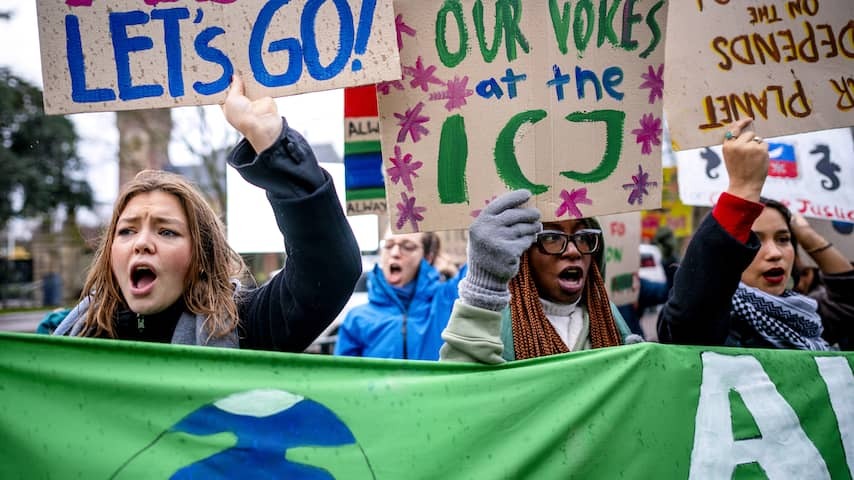
For the first time, the highest judges of the United Nations are today issuing a ruling in a major international climate case, initiated by a group of islands threatened with submersion. The ruling is historic in any case. The question is whether it will lead to concrete action.
Fifteen judges from different countries have been considering one of the most complex issues of our time since December: what responsibilities do countries have to address the climate crisis, and to what extent are they liable if they cause climate damage or do nothing?
Now that 98 countries have been heard, the judges are today issuing the long-awaited ruling in the form of an advisory opinion. With this, the judges provide a legal explanation of what has already been established in the field of climate, for example in treaties. So, no one has been sued.
The judges are affiliated with the International Court of Justice, the main judicial body of the UN. Usually, cases between states are handled there, but now a climate case is being heard for the first time in the Peace Palace.
Tiny islands hope for more climate action
Let’s go back to 2019. The story behind the climate case began then with 27 law students on the small island of Vanuatu in the Pacific Ocean. On the other side of the world, the existence of some island states is threatened by sea-level rise. A problem that has arisen because people have caused global warming.
The islanders speak of a problem for which they are not responsible, but by which they are severely affected. “With a case, we don’t want to blame anyone, but rather create an opportunity for countries to listen to each other,” said initiator Cynthia Honiuhi from Vanuatu earlier in an interview with NU.nl.
Through the general assembly of the UN, Vanuatu – one of the smallest countries in the world – has requested the advice from the judges on behalf of the students and other islands. The islands hope that such advice will ensure that the world addresses the climate problem more seriously and quickly, so that their habitat, nature and culture do not disappear.
‘Victory on paper’ is also historic
How far the judges will go in the advice is difficult to predict, according to Marcel Brus, professor of international public law at the University of Groningen. He does not expect the judges to suddenly trivialize the climate problem. But almost a hundred countries have been heard with rather diverse interests. “Including countries that emit a lot and do not want to rush.”
He therefore expects that the judges will not be too concrete in the advice. The power to make policy or financial agreements about it lies with the politicians and not the judge. Much has already been established in the Paris Agreement from 2015, the most important climate agreement in the world.
Brus draws the comparison with an advice from the court from the nineties about nuclear weapons. In it, all kinds of legal rules were clarified, but in practice countries do not have fewer nuclear weapons and there is no concrete policy to remove them. “It’s a bit of a victory on paper,” says Brus.
Yet this climate case is already historic, according to Brus, because it is the first time that such a high court has spoken out about the legal approach to climate change. Binding or not, this advice probably lays the foundation for future climate cases from countries and communities worldwide.
Initiator Honiuhi remains hopeful for what she considers a fair outcome, she tells NU.nl. “I hope that this advice provides the clarity that the world needs about the responsibilities of states. And that the Court also better protects the rights of future generations against the consequences of climate change.”